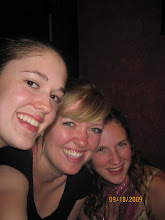
Today in Bolivia, the Presidential election is taking place and La Paz waits in silence while the people go out to make their vote. The political atmosphere in Bolivia has been nothing less than interesting and it has certainly been controversial, much like politics throughout all of Latin America. Throughout my time in Bolivia, I have heard varying opinions about Evo Morales, the current President of Bolivia, and it has been difficult in deciding on an opinion about him. There are always negative aspects of a government no matter what country it is, and in Latin America, corruption is a defining characteristic, thus the government of Evo has not been viewed very differently from the rest. This is not to say that the government of Evo Morales is not a unique situation; it is a completely new situation for not only the people of Bolivia but also for all indigenous people throughout the world. Evo may not be a perfect President but he is the first indigenous President ever to be elected and that is something to be said.
Before leaving Cochabamba there was a lot of talk about the presidential candidates and there was a lot of discussion about who was going to vote for who and why. It soon became obvious that the middle class was in support of Manfred, Evo’s opposing candidate, and the lower class was in support of Evo. The indigenous population dominates Bolivia and they are fiercely proud to have a President that represents their social class. There are even people from the middle class who are happy that there is someone who can finally represent the people of Bolivia, not just a small percentage of them. The change Evo has created is an interesting and controversial issue, and there is so much debate about the amount of good versus the amount of bad Evo is doing. Evo is criticized for creating social tensions between the lower and upper classes, for legalizing coca production, which has led to an increase in narco-trafficking, and for causing the economy to go downhill. He has also been given credit for good things such as developing parts of rural society and for meeting the demands of the indigenous population, something that has not been done with past Presidents.
I had a friend say once that he would vote for Evo simply because Evo has broken the cycle of politics in Latin America. Evo has brought to the forefront a part of society that has been continuously ignored throughout all of history. This really is significant and it weighs on the situation at hand. Do we let Latin America continue its’ cycle of rich politicians ruling society or do we support the change Evo has brought, even if it some of the change is negative? There is worry about Bolivia turning into another Venezuela, a country that has continued to eliminate the rights of it’s’ citizens. Hugo Chavez is a large influence on the acts of Evo Morales, thus I do not blame Bolivians for being worried.
There is no doubt that Evo is going to win this election. He is in the running at this moment and he will win by a landslide. There is doubt about how Bolivia will turn out. What will the future bring? Only time will tell.









